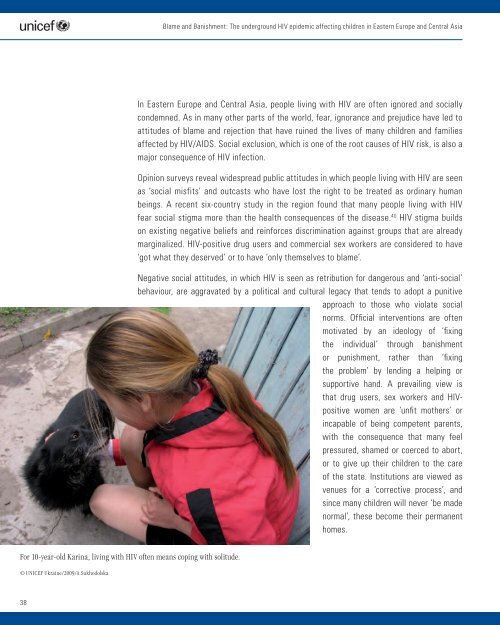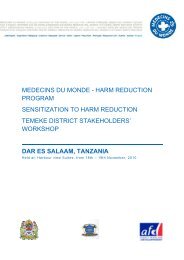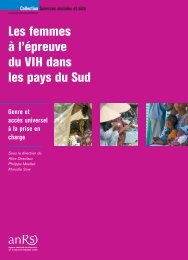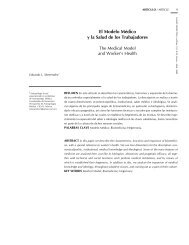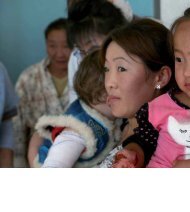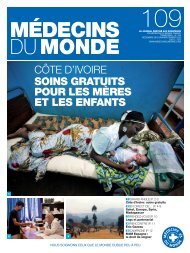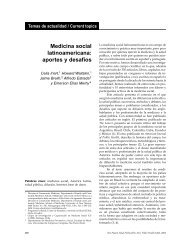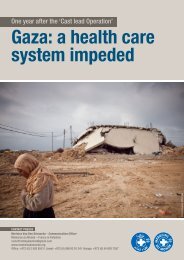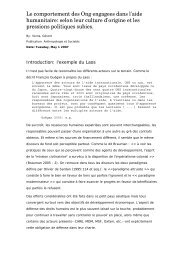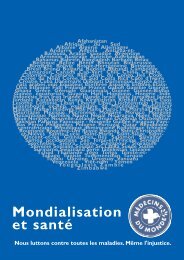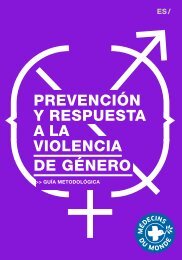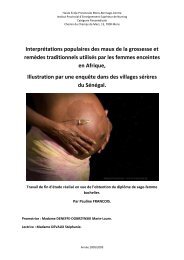Blame & Banishment - Médecins du Monde
Blame & Banishment - Médecins du Monde
Blame & Banishment - Médecins du Monde
Create successful ePaper yourself
Turn your PDF publications into a flip-book with our unique Google optimized e-Paper software.
<strong>Blame</strong> and <strong>Banishment</strong>: The underground HIV epidemic affecting children in Eastern Europe and Central Asia<br />
In Eastern Europe and Central Asia, people living with HIV are often ignored and socially<br />
condemned. As in many other parts of the world, fear, ignorance and prejudice have led to<br />
attitudes of blame and rejection that have ruined the lives of many children and families<br />
affected by HIV/AIDS. Social exclusion, which is one of the root causes of HIV risk, is also a<br />
major consequence of HIV infection.<br />
Opinion surveys reveal widespread public attitudes in which people living with HIV are seen<br />
as ‘social misfits’ and outcasts who have lost the right to be treated as ordinary human<br />
beings. A recent six-country study in the region found that many people living with HIV<br />
fear social stigma more than the health consequences of the disease. 40 HIV stigma builds<br />
on existing negative beliefs and reinforces discrimination against groups that are already<br />
marginalized. HIV-positive drug users and commercial sex workers are considered to have<br />
‘got what they deserved’ or to have ‘only themselves to blame’.<br />
Negative social attitudes, in which HIV is seen as retribution for dangerous and ‘anti-social’<br />
behaviour, are aggravated by a political and cultural legacy that tends to adopt a punitive<br />
approach to those who violate social<br />
norms. Official interventions are often<br />
motivated by an ideology of ‘fixing<br />
the indivi<strong>du</strong>al’ through banishment<br />
or punishment, rather than ‘fixing<br />
the problem’ by lending a helping or<br />
supportive hand. A prevailing view is<br />
that drug users, sex workers and HIVpositive<br />
women are ‘unfit mothers’ or<br />
incapable of being competent parents,<br />
with the consequence that many feel<br />
pressured, shamed or coerced to abort,<br />
or to give up their children to the care<br />
of the state. Institutions are viewed as<br />
venues for a ‘corrective process’, and<br />
since many children will never ‘be made<br />
normal’, these become their permanent<br />
homes.<br />
For 10-year-old Karina, living with HIV often means coping with solitude.<br />
© UNICEF Ukraine/2009/A.Sukhodolska<br />
38


